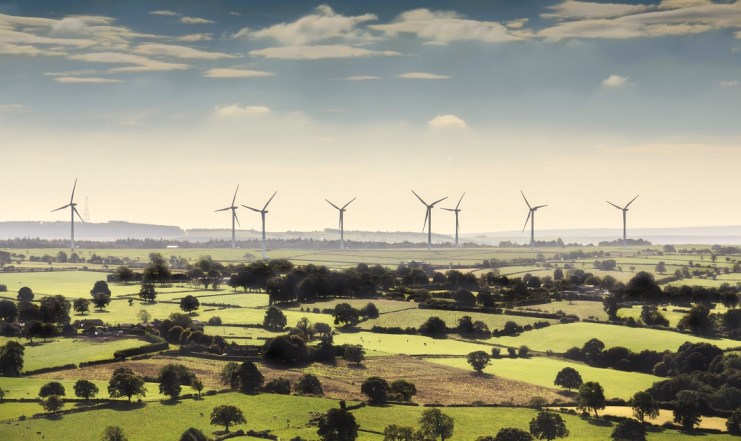Sunak dangles red meat to Tory members with onshore wind farm crackdown

Former Chancellor and leading Tory leadership contender Rishi Sunak has committed to keeping in place tight planning rules concerning the construction of onshore wind farms.
He has pledged to keep the de-facto ban on building any new onshore wind farms if he wins the Tory leadership race and becomes the next Prime Minister.
Sunak told The Telegraph he would reverse Boris Johnson’s decision to relax the rules and let local communities agree to host turbines in return for cheaper electricity bills.
This was outlined in the Government’s supply security strategy, which was published in April earlier this year.
He said: “Wind energy will be an important part of our strategy, but I want to reassure communities that as prime minister I would scrap plans to relax the ban on onshore wind in England, instead focusing on building more turbines offshore.”
The ‘red meat’ approach is Sunak’s freshest attempt to win over sceptical Tory members, who will decide the UK’s next Prime Minister.
He is currently ahead with MP votes, but polling shows him behind his rivals among the grassroots.
There is strong hostility towards wind farms in many rural Conservative-voting areas – due to noise complaints, and the fact some people consider them to be a blight on the landscape.
Former Prime Minister David Cameron introduced restrictions on new onshore wind farms in 2016, by excluding them from government subsidies for green electricity.
This has seen the number of onshore developments plummet in the past six years, with the Government instead pushing for new offshore sites.
Kwasi Kwarteng, the Business Secretary, has been pushing for Cameron’s policy to be overturned but more than 100 Tory MPs have privately lobbied No 10 against a change.
This also scuppered his attempt to bring in onshore wind targets as part of the supply security strategy, with Downing Street suffering intense pressure from backbenchers.
Turbines placed out at sea are generally more efficient and reliable than those on land, but cost significantly more to build and maintain.
Sunak also vowed to introduce a legal target to make British energy self-sufficient by 2045 – through a massive expansion in offshore wind.
Earlier this month, the price of new offshore wind power dropped to a new record low of £37.35 per megawatt hour of electricity, following the latest government auction for renewable contracts .
This is four times cheaper the price of power from gas power plants.
Sunak has also committed to re-establishing a separate Department of Energy, which was subsumed into the Department of Business in 2016.
He would also develop an Energy Security Committee ahead of the winter tasked with keeping the lights on and reforming the market to cut future bills.